BY ANNA REDEKOP, ACS PARENT
When our daughter, Sadie was 10 months old, she was not meeting several of her developmental milestones. So we took her for genetic testing. I remember sitting her on the ground in the doctor’s office and giving her a cracker thinking everything would be fine and the doctor was about to confirm that nothing was amiss; Sadie was just a slow developer and would catch up to her peers in no time.
Pushing past the limits
We received challenging news that day about Sadie’s condition—Angelman Syndrome, and left the appointment with broken hearts. We thought of all the debilitating symptoms Sadie would have to try to overcome for the rest of her life. We were told Sadie would most likely never walk, certainly would never talk, and would be cognitively affected, will suffer from seizures and require life-long care. No parent can ever prepare themselves for this type of diagnosis.
Through Sadie’s own determination, she achieved several development milestones, such as walking, when only years earlier, we were told this outcome was highly unlikely.
The best fit
So when the time came to decide on an elementary school, we knew Sadie needed to be somewhere that fully integrated special needs kids and provided the best possible care and guidance into helping atypical kids become the best version of themselves.
ACS aligned with our desire of how we wanted to see Sadie educated and integrated into a classroom setting.
The Learning Support program at ACS truly believes that all kids are unique individuals who are able to contribute to an educational and community setting in their own irreplaceable way. By celebrating these differences and offering a fully inclusive learning environment, everyone can learn from one another and learn to support each other.
From diversity to inspiration
It is important to us, as parents of a special needs child, that the parents, teachers, and students in Sadie’s community, know why we feel so strongly about including all kids of varying levels of physical and intellectual abilities into one classroom.
- Sadie adds to the diversity of her classroom; diversity enriches our lives. Neurodiversity makes for a more interesting classroom. How boring would it be if everyone looked and acted the same in school!
- Sadie, and other students with disabilities, bring different strengths and weaknesses into the classroom. With her hugs and smiles, Sadie brings charm and human connection. Through the display of her physical and mental disabilities, she also humanizes the educational environment, sending a clear message that we all need to pitch in, student and teacher alike, and help each other out in life.
- Sadie does better in a setting where more is expected of her (just like any typical kid). In an inclusive classroom, the positive performances of her peers inspires her, and she has accomplished more, because like most of us, we rise when expectations are high.
- Students with disabilities challenge us all to provide better ways to educate ALL kids. To create an effective inclusive classroom, educators need to build a learning environment that provides a variety of ways to learn and engage.
The Best We Can Be
The impact on Sadie’s life at ACS has been incredible. The journey has been hard, but knowing that Sadie can go somewhere where she is valued as a human being and truly seen for who she is and all she can become, is all we want as parents.
One of our greatest fears was that Sadie would have no friends because she is different, but our hearts are full. Sadie has an amazing group of friends who genuinely love her and want to spend time with her.
As parents, we all have aspirations for our children and happiness would be at the top of our list. We know our daughter is happy and makes those around her happy.
Sadie has special needs, but we really think they are just human needs; the need to be accepted, included, nurtured, loved, educated, to move, communicate, and contribute in this world.
Thank you ACS for valuing all students and seeing the individual student first and not a diagnosis.
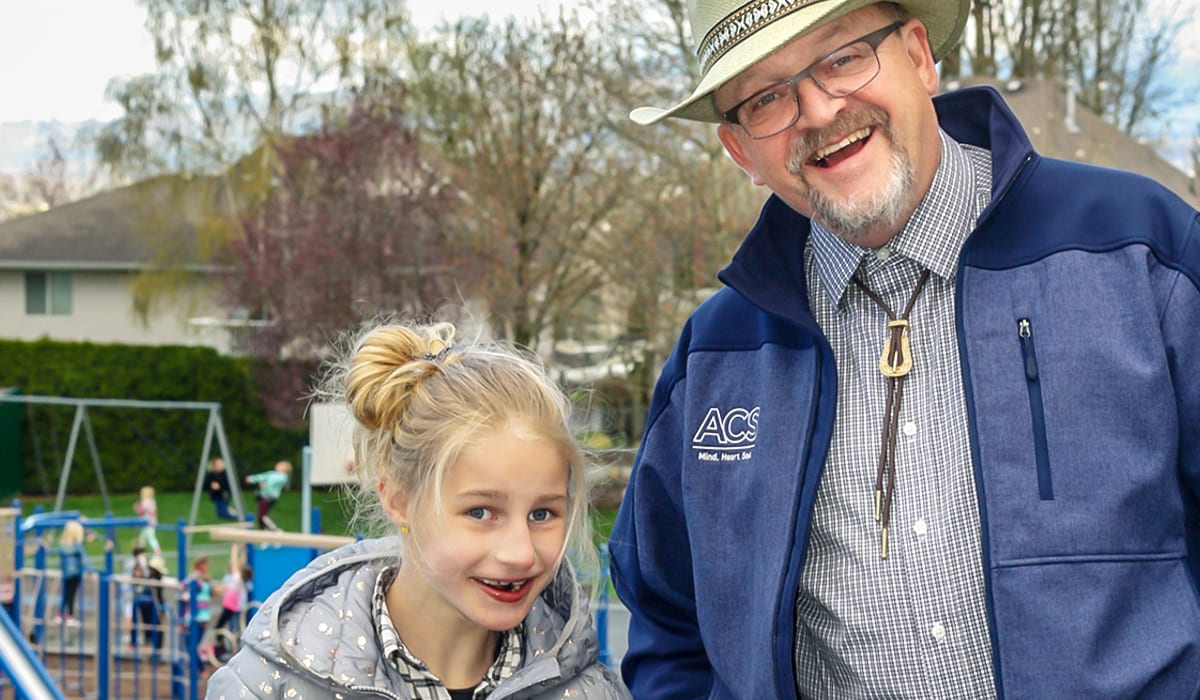
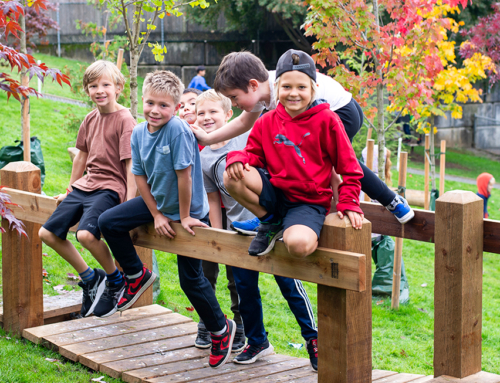
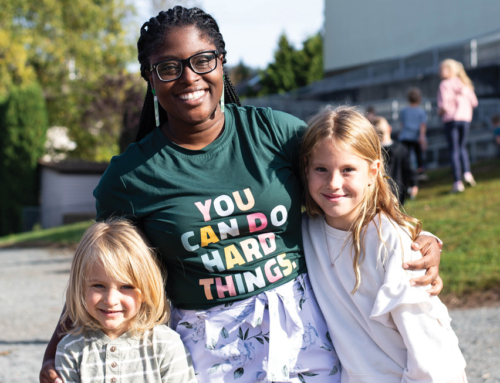
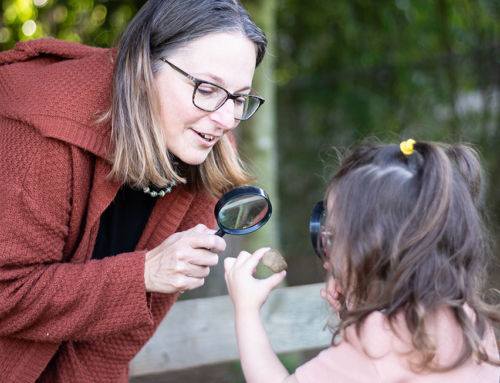

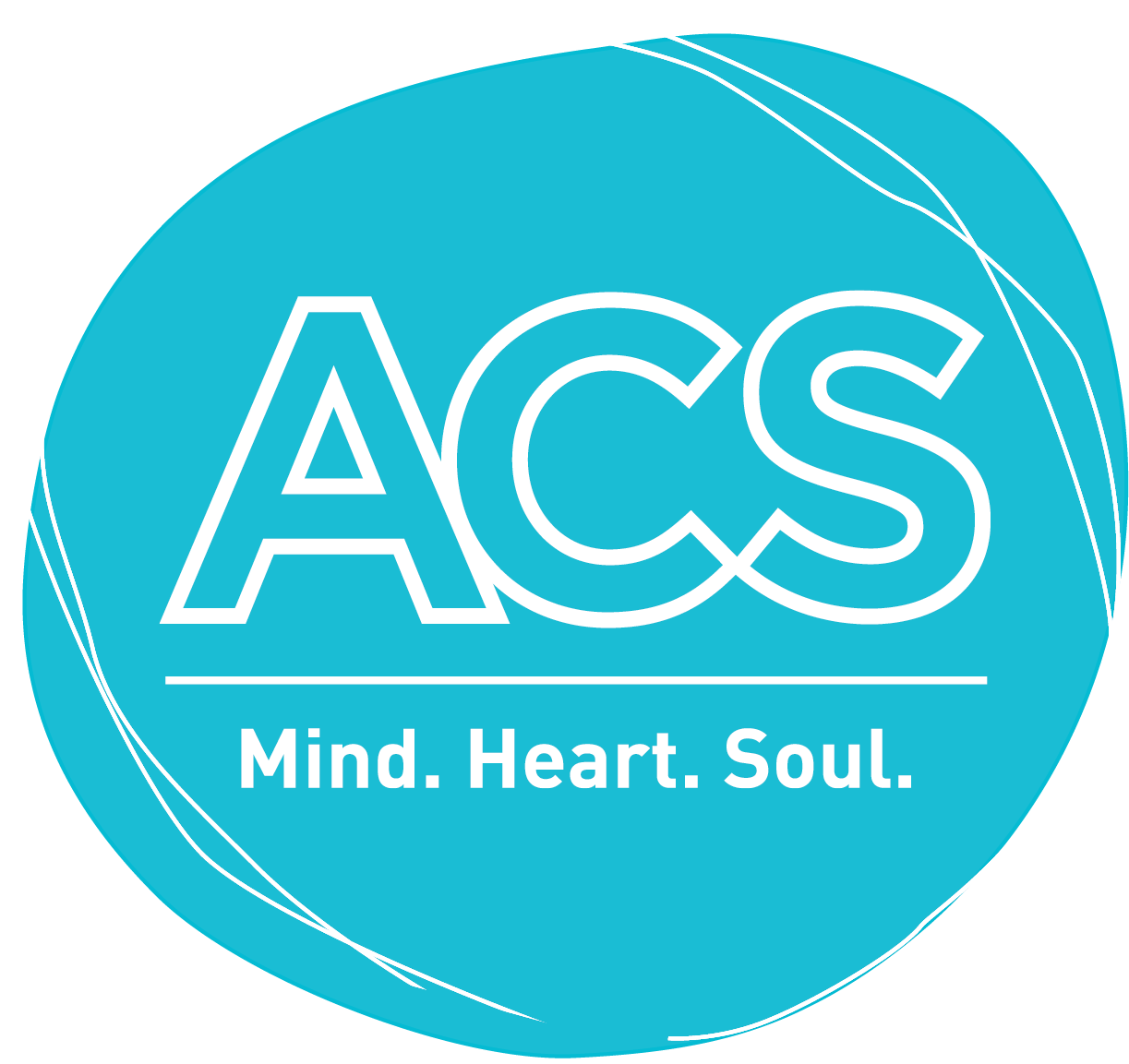
WHAT DO YOU THINK?
Anna, this is such a joy to read. Even though I have missed it a couple of times due to my forgetful old brain, I take great delight in spending a recess with Sadie. You are absolutely right, she brings me and those around her much joy.
Well written and so true! Thanks Anna, for writing this for us all to appreciate, and think on…
😄😄😄
Fabulous, Anna! I’m so happy to hear of Sadie’s experience at ACS!
So good. Your daughters smile and bright eyes are a glimmer of light–they speak loudly and draw others into the joy & love she has in her life. Thanks for sharing. :)
Beautifully written Anna, and so true!!
Thank you so much for this beautiful article.
It’s brought tears to my eyes knowing that Sadie is accepted, cherished and loved.
Also knowing that our kids live and learn in such an environment, delights the heart of a parent.
Respectfully
X Mazari
Wow I cried too! Very tear jerking in a fulfilling way <3 God's work in His creation continues…
Wow, Anna, what a great inspirational article dedicated to the inclusion of special needs children in our schools. Yes, it is a joy as grandparents to observe how the children and teacher’s of ACS are joyfully involved in the life of Sadie. What a blessing, indeed!
Amen!!
This is so enriching to read. My heart is full!! Thank you for writing this as I think of a friend, Eva, whom I made during one of the X Block sessions. I truly miss her and look forward to seeing her again soon.